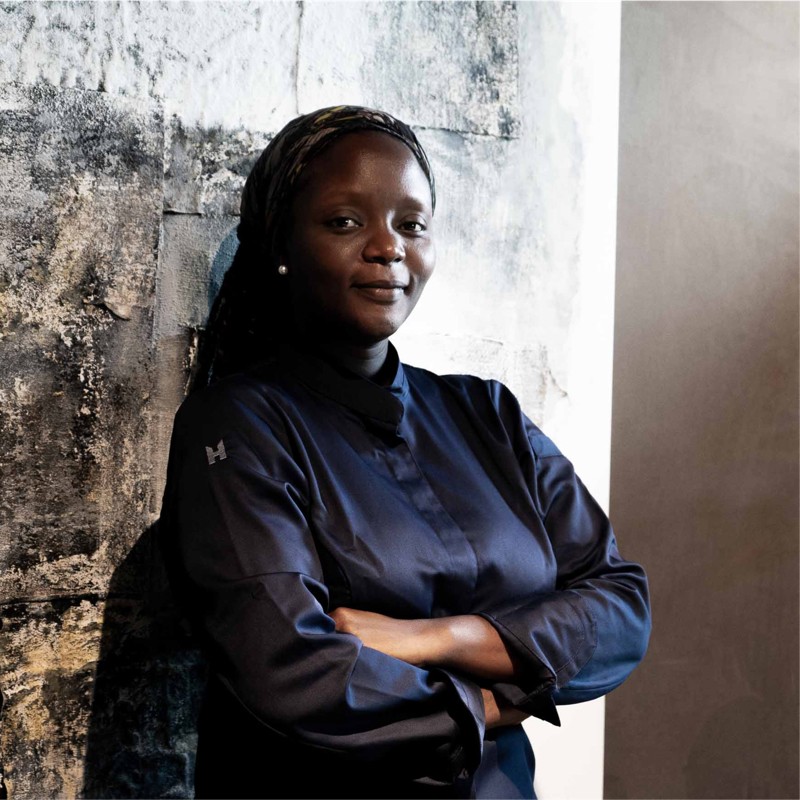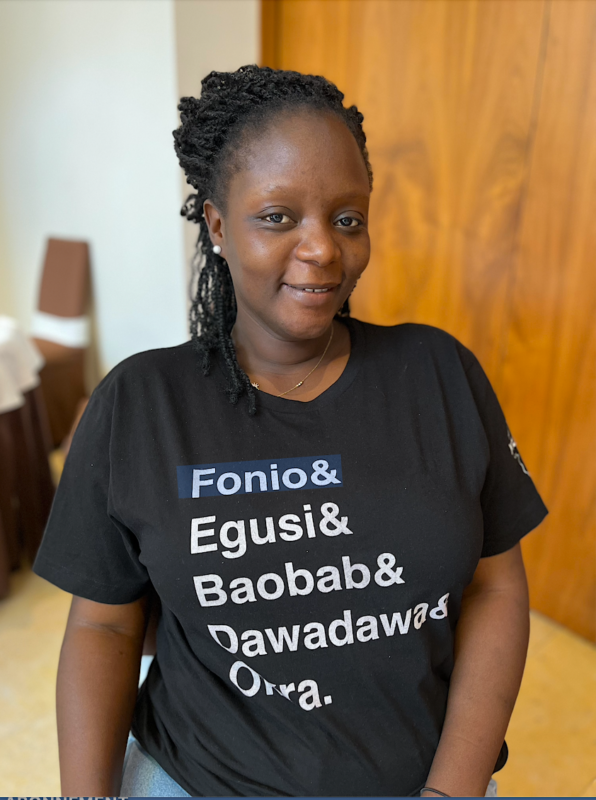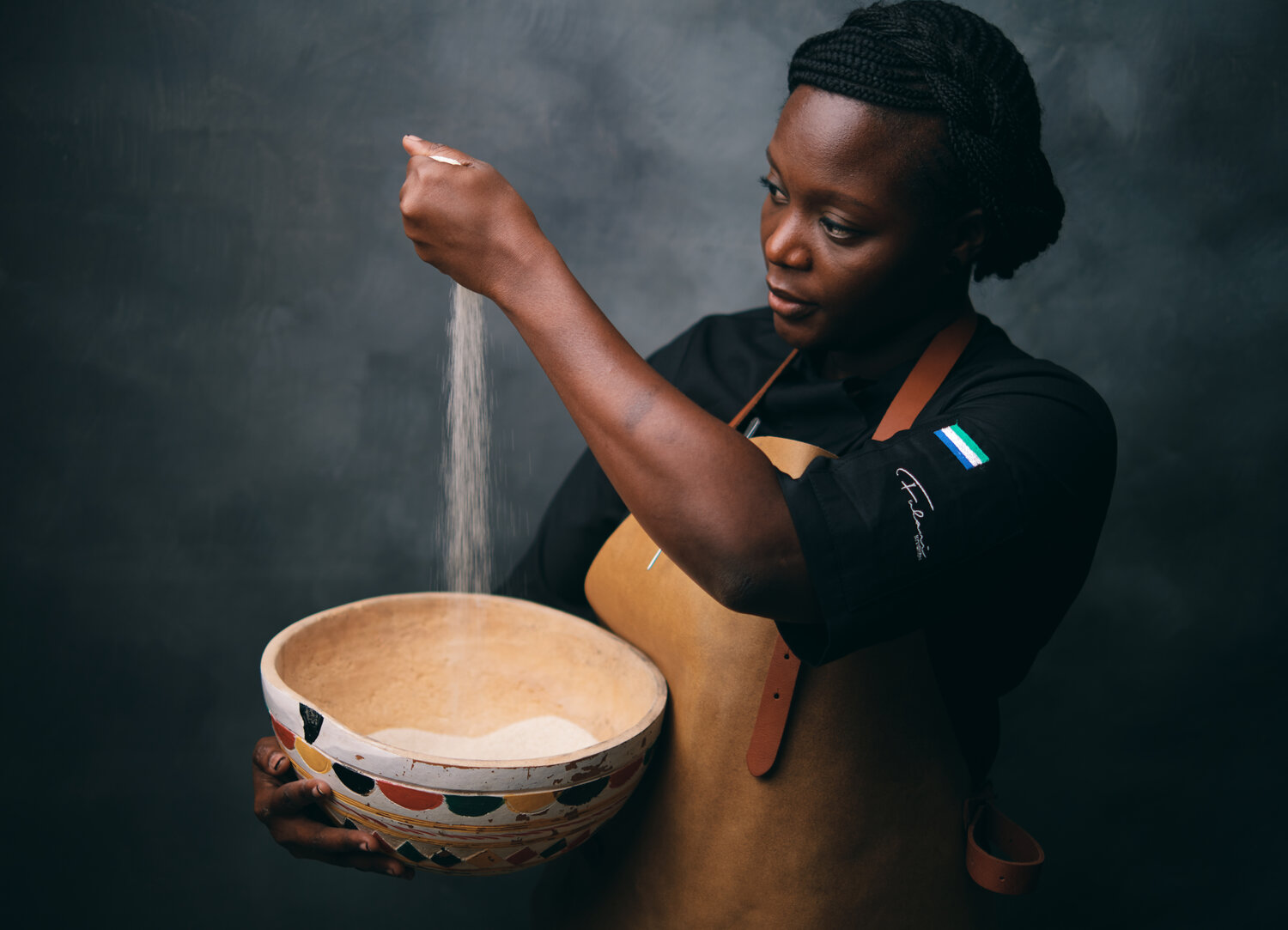Born and raised in Freetown, Sierra Leone, into a first generation Fulani family of Guinean descent, Fatmata Binta, known as “Chef Binta”, has won, on June 21, the 2022 edition of the “Basque Culinary World Prize 2022” for highlighting the culinary culture of the Fulani people through her innovative pop-up initiative “Dine on a Mat” with her restaurant “Fulani Kitchen”. She is the first African personality to win this award. In 2021, the young chef was the winner of the Rising Star Award at The Best Chef Awards 2021.
“Dine on a Mat is a nomadic restaurant concept that has offered an immersive experience in the ways of eating and interacting with Fulani food across three continents. With this pop-up kitchen initiative, launched in 2018, Fatmata Binta hopes to bring ancestral techniques to light, including sharing grains, spices, and most importantly, stories and conversations from the Fulani culture.
The Fulani people number about 20 million and are considered the largest nomadic group in the world. Chef Binta’s parents were first generation Fulani who moved from the Fouta Djallon of Conakry, the capital of Guinea, to Freetown, Sierra Leone.

Modern nomadic chef
Now based in Accra, Ghana, Chef Binta has been the founder of Fulani Kitchen restaurant since 2017. She describes herself as a modern nomadic chef. “Like my ancestors, I have travelled to many countries and worked with renowned chefs”. She started her career as a TV presenter, studied international relations in Sierra Leone and ended up living in Madrid, Spain. Eventually, she got the courage to move to Kenya to study culinary arts at Boma International Hospitality College. “Today, I live in Ghana to create dynamic dishes inspired by my Fulani roots with Fulani communities across Africa. My classical training, my love for nomadic rural life and agriculture continue to evolve: the journey continues,” she explains.
In Fulani Kitchen, Chef Binta combines her nomadic Fulani roots, her classical training at the Culinary Institute of Kenya and her love for rural life and agriculture. “The beauty of the cultural norm of sharing food makes Fulani cooking and eating interesting. We create lively dishes inspired by Fulani communities across Africa, with menus that reflect the minimalist lifestyle of the Fulani people. Our culture is rich, welcoming and our way of life is very adaptable, we can all learn from it… My dishes are authentic, modern and sustainable. I take you to a new world by creating a traditional setting, telling you about Fulani culture and serving ancient grains, indigenous spices and exciting West African ingredients in an interactive and modern way.”

Promoting Fulani culture
Chef Binta’s vision is to promote Fulani culture through food, bring people together and promote African cuisine to the world. “Food is love made visible. As Africans, food is at the heart of our cultures and traditions. It is what unites us as a family and community. It is therefore not surprising that food plays a major role when Africans across the continent celebrate love, whether it is welcoming a newborn child at naming ceremonies, birthdays, weddings, right of passage ceremonies or even deaths. It is this belief that food is love that drives my passion for cooking. A passion that, as an aspiring African chef, drives me to bring Africans together through food,” she explains.

Supporting Fulani women
By sharing the essence of Fulani culture and cuisine, Chef Binta also wants to support Fulani women in their struggle for economic independence and the perpetuation of their tribe’s culinary traditions. To this end, she founded the Fulani Kitchen Foundation to educate, train and empower women and girls from all Fulani regions, starting with the construction of a centre that will serve as a place for women to meet social, educational and community needs, and provide a safe place for them to process and package different types of products. Her foundation has started work on four hectares of farmland with the aim of expanding to 500 in the near future, so that at least 200 tonnes of fonio can be exported to different countries in Africa and abroad. Through this initiative, more than 300 families from 12 communities and 4 regions of Ghana are benefiting from her programme.

Fonio ambassador
Chef Binta has spent years studying the cultural history of West African food, spices and agricultural products, including millet, dawadawa and fonio. These ingredients are part of the region’s identity and have a history linked not only to the culture of its people, but also to migration and trade with other parts of the continent.
Fonio is of particular interest to Chef Binta because this ancient grain not only links the plate to a geographical location, but also forms the basis of the Fulani Kitchen menus.
Traditionally grown and consumed in West Africa, fonio is gluten-free, highly nutritious, requires less water to grow, has a shorter life cycle, is more resistant to disease and drought, and returns more nutrients to the soil than staple crops such as rice and maize.



